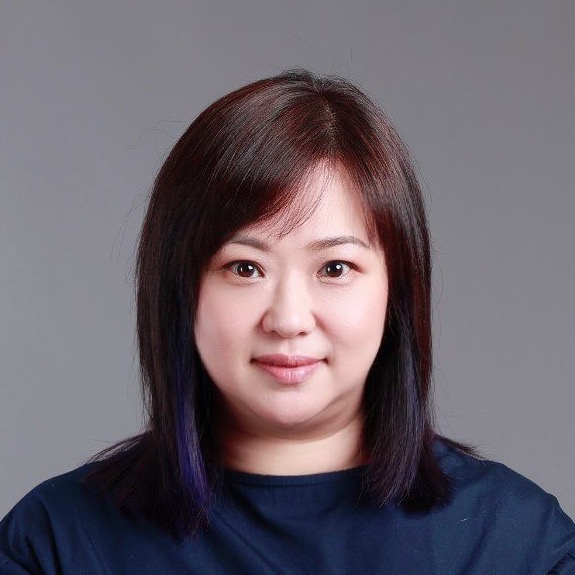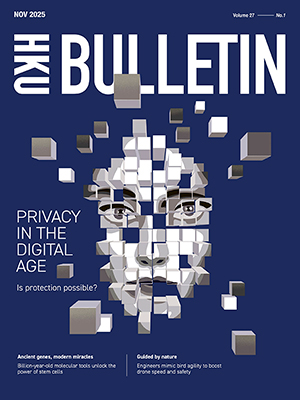November 2023 | Volume 25 No. 1
Outside-of-Class Action
Listen to this article:
Launched in 2010, the Clinical Legal Education (CLE) programme is still the only live client programme offering preliminary legal advice to ordinary citizens in Hong Kong. Over those 13 years, the programme has handled more than 2,600 cases under the Free Legal Advice Scheme, as well as over 400 Miscellaneous Prisoners Cases – assisting remand prisoners whose earlier applications for legal aid have been refused to re-apply so that they can have legal representation for their appeals. A total of over 900 students have participated, and the Faculty has 23 CLE students in the current semester.
Interested members of the public may apply to the CLE office, which identifies cases with real legal issues, and assigns them to students who have registered for the six-credit CLE course. During an initial interview session, CLE students work in pairs taking instructions from the lay clients about the material facts and issues of the case relevant to the legal advice to be sought.
They then write a case summary and conduct legal research for submission to the CLE teacher and volunteer lawyer in charge of each case. Later, the students will attend the advice sessions where the volunteer lawyers who are practising solicitors and barristers, give preliminary legal advice to the clients. The students record the advice given and submit a summary to the volunteer lawyer for approval and the CLE office for their records.
Experiential learning
“The value of CLE is two-fold,” said Ms Julienne Jen, Principal Lecturer in the Law Faculty and interim head of the Department of Professional Legal Education. “For members of the public, it gives them free access to legal advice and assistance with applying for legal aid. For students it is a rare chance for experiential learning through interviewing real clients and conducting legal research under the supervision of teachers and voluntary lawyers. They also gain exposure to the courts by attending civil and criminal appeal hearings.
“From the teaching point of view, one of the CLE’s greatest values is that it instils the pro bono culture in the students’ heads. When students go on to train in a law firm, they simply will not have time to do this. But we hope in the years that follow they will remember and include pro bono work in their practice.”
While legal aid is extensively available in Hong Kong, a lot of people don’t have the expertise to use it effectively. Ms Jen cites cases of medical negligence as an example, where clients don’t know if they have a case or not because they simply don’t have access to the required medical expertise.
“I ask CLE students to take time to review the client’s medical documents, doctor’s reports etc, and really study them closely so that we have the facts and I can explain clearly and in detail if the client has a case or not,” she said. “From the public’s point of view, a key part of what the CLE achieves is imparting knowledge, so the clients – even if it turns out they do not have a case – at least don’t walk away feeling aggrieved or ignored.”
One of the CLE research assistants is student Tony Ho Yi-chun. “The CLE is a rare opportunity to gain practical experience that we can’t get anywhere else,” he said. “We’re allowed to manage real cases under the supervision of experienced legal practitioners. For the first time, we can take what we learn in class and put it into practice.”
“I’ve worked on, for example, employee compensation cases, where I’ve interviewed the clients and handled documents, such as medical records and reports, court submissions, and tax documents, that we wouldn’t usually experience at university. You learn real practical skills early on, from effective office communication, managing client’s expectations to formulating a litigation strategy.”
Another student research assistant Maxine Law Chin-yuet added: “We also get to observe how practitioners offer advice and manage clients. The CLE course enables us to develop different lawyering skills through handling real cases of different kinds. While the CLE office only provides preliminary oral legal advice in general, in exceptional cases the office may assist clients in their application for legal aid, such as setting out the merits of the client’s case by way of letter.”
The Faculty of Law also has experiential learning opportunities in other areas through a series of programmes offering the public more specialised advice, including Disability Rights, Equality Rights, Global Migration, and the Refugee & Human Trafficking Programme, which assists with legal casework for victims of trauma including asylum seekers, refugees, and victims of trafficking and sexual exploitation. For students, the programme provides a unique opportunity to learn about international human rights and refugee law.
From the teaching point of view, one of the Clinical Legal Education’s greatest values is that it instils the pro bono culture in the students’ heads.

MS JULIENNE JEN

